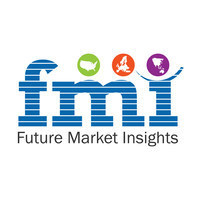ESOMAR-certified consulting firm Future Market Insights has recently published a report on the global personalized beauty devices market for the forecast period 2021-2031. According to the study, the market is slated to expand at a CAGR of over 25.3% between 2021 and 2031. The market is expected to surpass a valuation of US$ 80.7 million by 2031-end on the back of increasing prevalence of skin problems across the globe.
Rising cases of skin diseases such as photo-aging in increasing across the globe due to excessive pollution and worsening climate, resulting in sunburn, hair-loss, acne and other skin disease. Furthermore, rise in the ageing population is also the driving the market of personalized beauty devices.
Growing consciousness in men regarding the skin issues coupled with manufacturers introducing unique technologies for age control among men will foster the sales of personalized beauty devices.
Moreover, penetration of social media and internet have created conducive environment for manufacturers to market their products and reach targeted audience, strengthening their brand value. Manufacturers are focusing on implementing technologies such as artificial intelligence and data science, facilitating the growing demand of anti-ageing beauty devices among consumers.
Advent of ‘smart’ beauty devices and willingness among millennials and baby boomers to look young & attractive will drive the market demand exponentially over the coming years. Proliferation of online platforms are providing aid to the people about the on-going trends and beauty products.
Beauty bloggers and professionals are actively posting about the new products and devices launched by key players. These trends are providing lucrative growth opportunities for prominent manufacturers, bolstering the market growth.
“Consumers’ willingness to look young and attractive coupled with readiness to invest in smart & personalized beauty devices for healthy skin will create lucrative growth opportunities for the market” says an FMI analyst
Key Takeaways
- In terms of product, skin care segment is expected to register higher growth as compared to other segments, expanding at over 28.4% CAGR
- Over 64% of personalized beauty devices sales concentrate within in-store service type segment
- Online retail sales channel are gaining popularity with the growing penetration of internet and social media
- Rising prevalence of skin issues across Germany will aid the growth of personalized beauty devices, exhibiting a CAGR of 25.8%
- India is expected to lead the South Asia’s personalized beauty devices market, accounting for over 35% sales
- Technological development in expanding beauty industry across Australia will account for 65% sales in Oceania
Competitive Landscape
Product innovation to offer advanced technology, launch of new products, and mergers and partnerships are some of the strategies adopted by key players to improve their market revenue. For instance:
- In November 2020, Lumen announced the launch of hand-held personalized nutrition device to keep a track on the metabolism across the U.K. implementing artificial intelligence and real-time data to keep the track.
- In October 2020, Fittop, a national high-tech enterprise announced the launch of its latest smart beauty devices, Fittop’s upgraded facial cleansing brush L-Sonic that includes RF beauty device built to improve skin problems such as acne. Also, the company introduced its Plasma Acne Beauty Device and Blue LED Light Acne Beauty Device at Asia Digital Week.
Some of the leading companies operating in personalized beauty devices market profiled by FMI include:
- L’Oréal S.A.
- Unilever PLC
- Kendo Holdings, Inc.
- L’Occitane Groupe SA
- Preemadonna Inc.
- Shiseido Company, Limited
- Amorepacific Corporation

